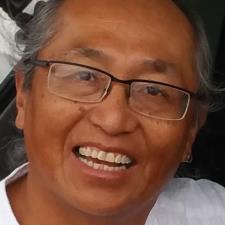
Jon G. answered • 10/20/18
Patient knowledgeable STEM educator/former healthcare practitioner
Greetings Kulwinder R. Hope you're off to a good school year. This is a very good question as there a a number of issues associated to this particular topic, as well as relevant applications historically and even in the present.
I'm going to give you some bullet points and if you'd like further expansion on these issues you are welcome to do you own research or connect back with me for a more in depth lesson.
Let's begin:
- Even before the authors of the Declaration, let alone the Constitution of the United States conceived of these documents, a number of indigenous groups sought and fought for their right for existence, the right for self-determination and the right for self-governing, this at least 96 years before 1776. In particular, the Pueblo peoples of the Southwestern US revolted against Spanish occupation and tyrannical, oppressive rule, resulting in the Spanish abandoning New Spain for 12 years.
- In the Declaration of Independence, which most Americas actually know of, there are words in the document which refer to the indigenous peoples of what will eventually become known as the USA, as "merciless savages". This was the attitude of what is often referred as at the 'founding fathers'.
- Native Americans where not accepted nor recognized as citizens of the US until 1924, though many Native Americas served the US in military service beginning with the Revolutionary War, War of 1812, the Mexican American War and the First World War.
- Native Americans were not allowed to vote in national elections until 1948, through they served this country in the wars noted above, as well as the Second World War.
- There has been many more efforts, legislatively and socially, to dehumanize and marginalized Native Americans, by trying to removing them from their culture and heritage to preventing them from speaking their languages.
- Though they were eventually accepted as US citizens, they along with other people of a different skin color were prevented and ignored from participating in any general contribution of the US population.
- It has only been in the past 50 or so years when Native Americans have been include and supported by an federal legislation and policies, encouraging and promoting participation in US society.
- There have been more efforts to take away their rights and limit their participation in US society.
- The 2 most recent examples of this continued racist and prejudicial attitudes are a mere 24 months old. The current administration's and decisions by federal legislation which allowed the progression of the Dakota Access Pipeline and the North Dakota voters registration laws, are aimed specifically at Native Americans.
- So...there are many more actions which have tried to limit Native American inclusion into US society
This is not necessarily what you have have thought would be the answer, however that is the reality.
If there has been a few examples of legislation which has tried to expand political rights the one that comes to mind is the effort initiated by Miguel Trujillo, a member of the Pueblo of Isleta in New Mexico, who after having served in the US Marines during WWII, upon returning home, when trying to registering to vote was advised he could not vote because he lived on an Indian reservation. It was his efforts and the support of a number of federal legislators which eventually lead to a law which allowed voting rights for Native Americans.
Let me know if you need further clarification




